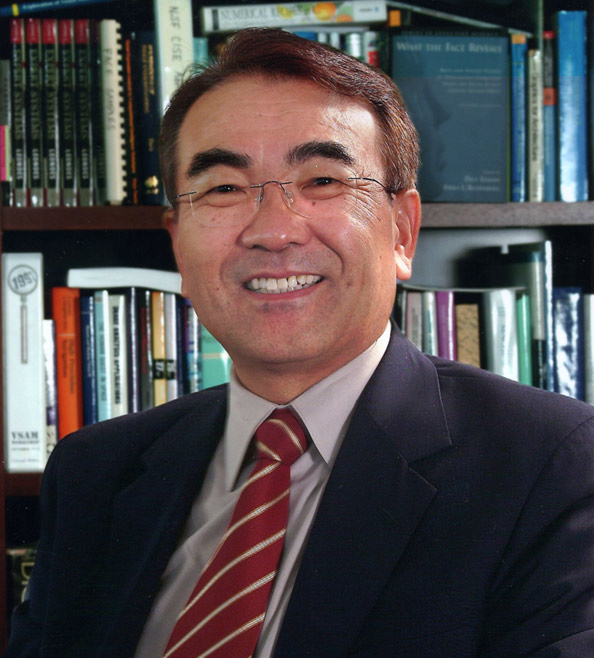Carnegie Mellon's Takeo Kanade To ReceiveInaugural Award From Japan's Tateisi Foundation
Byron SpiceWednesday, May 12, 2010Print this page.

PITTSBURGH-Takeo Kanade, the U.A. and Helen Whitaker University Professor of Computer Science and Robotics at Carnegie Mellon University, has been chosen by the Tateisi Science and Technology Foundation of Japan as the inaugural recipient of its Tateisi Grand Award and Prize.
The award recognizes Kanade, director of the Quality of Life Technology Center at Carnegie Mellon, for his pioneering contributions to digital technologies that enhance people's lives. Established by Kazuma Tateisi, the late founder of OMRON Corp., the foundation promotes the development of electronics and information technologies that promote harmony between humans and machines.
Kanade will receive a medal and a cash prize of $50,000 at an award ceremony May 18 in Kyoto, Japan.
"Professor Takeo Kanade, through his research on robotics at many fronts, has recognized the simple and clear thesis that understanding humans is critical for the development of technologies that are harmonious with humans, and he founded and shaped the new research area of digital human technologies," said Mitsuhiko Araki, president of Matsue College of Technology, who chaired the Tateishi Award selection committee.
Digital human technologies are based on observing and modeling the full range of human functionalities - from the anatomical to the cognitive - and adapting them for use in human-centered machines.
The quality of a new award often is determined by its first recipient, Araki noted. "In that sense, we are most fortunate to select Professor Kanade as the inaugural recipient of the Tateisi Grand Award and Prize," he said.
Tateisi established the Tateisi Foundation in 1990 as a culmination of his lifelong dream of creating an organization that would support science and technology researchers. By providing grants to researchers both in and outside of Japan, the foundation aims to keep alive Tateisi's management philosophy: "To the machine, the work of the machine; to man, the thrill of further creation."
An inventor and innovator, Tateisi in 1932 created a small manufacturing company to build a timer he developed for X-ray machines; that company eventually grew, thanks in large part to his commitment to research and development, into the diversified technology company now known as OMRON.
Kanade's list of achievements is long, diverse and unique. He spent 10 years as director of Carnegie Mellon's world-renowned Robotics Institute, and is currently director of the Quality of Life Technology Center, a National Science Foundation-sponsored engineering research center established in 2006. In addition, he is the founding director of the Digital Human Research Center in Tokyo, which aims to measure and model human functions for use in designing human-centered systems.
Kanade's research breakthroughs began while he was in college, when he developed the first complete system for face recognition by computers for his doctoral thesis. Since then, he has continued to explore the science of computer vision, including the physical, geometrical, optical and statistical process involved in vision, and translated them into mathematical models. In the early 1980s, he founded and led NavLab, a pioneering project that developed techniques for a vision-based autonomous car, including lane keeping, automatic parallel parking and object detection. NavLab produced a series of self-driving vehicles, including NavLab 5, a minivan that steered itself on a cross-country tour called "No Hands Across America" in 1995.
He co-developed the world's first direct-drive robot arm, which is used by several robot manufacturers and is recognized as one of the most advanced robot arm technologies. He also has made significant strides in visual media technology, particularly through his work in what he calls "virtualized reality," which gives viewers a 360-degree view of a scene. Part of this technology, known as "EyeVision," was used by CBS-TV during the replays in Super Bowl XXXV in 2001.
Kanade is a member of the National Academy of Engineering and the American Academy of Arts and Sciences. He has received multiple awards, including the C&C Award and Okawa Prize. In 2008, the Franklin Institute in Philadelphia awarded him the Bower Award and Prize for Achievement in Science, which is among the world's top awards for scientific achievement.
Byron Spice | 412-268-9068 | bspice@cs.cmu.edu
